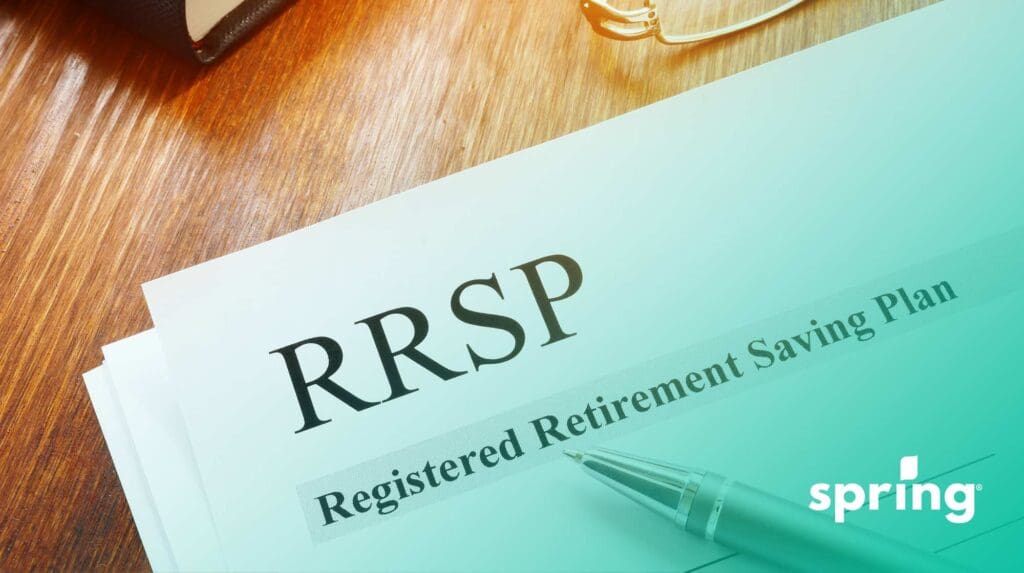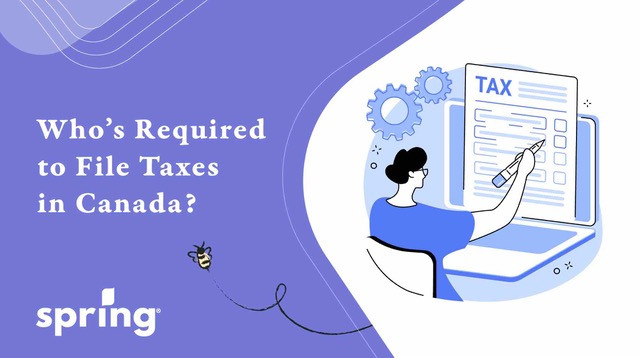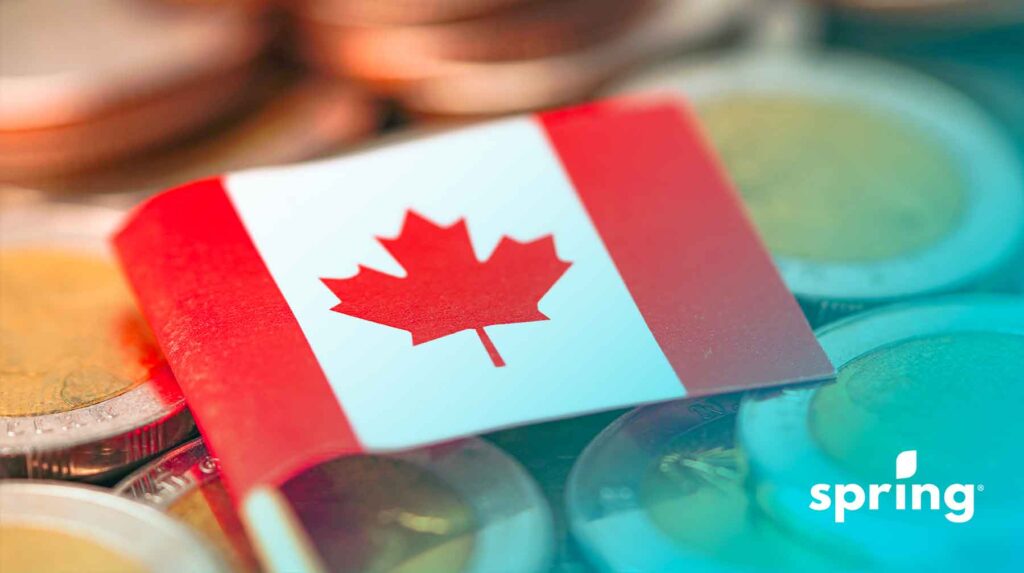** This blog post has not been updated since January 5th 2021. Some information may no longer be accurate. **
One thing is for certain though: no one has to navigate this crisis alone. See what emergency benefits the federal and provincial governments are offering struggling Canadians and find out everything you need to know about key initiatives like the modified EI program and new Canada Recovery Benefits.
Nine months later and COVID-19 continues to endanger the health and economic wellbeing of Canadians across the country. As of December 20, over 1.8 million people were collecting EI and more than 1.3 million people have applied for the Canada Recovery Benefit. Although significant job gains have been made since March, the economy is still 574,000 jobs short of regaining the approximately three million jobs lost from lockdowns earlier in 2020.
If you’ve been furloughed, laid off, or working reduced hours, rest assured that help is available. The federal and provincial governments are working hard to give you the assistance you need during these difficult times. New benefits and relief initiatives are continually being announced – great news if you’re worried about paying the bills. However, it can be confusing sifting through this influx of information. To make things easier, we’ve put together a comprehensive list detailing all the types of COVID-19 financial support available.
COVID-19 federal financial relief for individuals
Canada’s COVID-19 Economic Response Plan provides support for unemployed workers, people who are sick or quarantined, as well as families, seniors, and students.
Current components of the plan include:
Employment Insurance (EI)
The modified Employment Insurance (EI) program launched on September 27, 2020 and will be in effect for one year. It offers at least $500 per week or $300 per week for extended parental benefits. Keep in mind these amounts are before taxes and the minimum benefit rates so you could potentially receive more.
Other EI changes include:
- Setting a minimum unemployment rate of 13.1% across Canada for the EI program.
- Allowing Canadians with at least 120 hours of insurable work to qualify for benefits by providing a temporary, one-time credit of 300 insurable hours for those claiming EI regular benefits. Individuals claiming EI special benefits (maternity, parental, sickness, compassionate care, and family caregiver) will receive a credit of 480 insurable hours.
- Removing the medical certificate requirement when applying for sickness benefits
- Implementing temporary measures to support self-employed fish harvesters who rely on EI fishing benefits during the off-season. Fishers can now use earnings from 2018, 2019, and 2020 summer or winter seasons for their EI claims.
Thanks to these changes, EI will be available to more Canadians, including those who would not have qualified in the past. If you’re eligible, you can collect EI for up to 50 weeks.
If you received the Canada Emergency Response Benefit (CERB) through Service Canada, you should have automatically transitioned to EI when the CERB ended on September 27. If you got the CERB through the Canada Revenue Agency (CRA), you’ll need to apply for EI after you have received all your CERB payments. Once approved, you’ll be required to complete regular reports to prove you’re still eligible for EI benefits.
Canada Recovery Benefits
If you don’t qualify for EI, you may be eligible for three income support programs:
- Canada Recovery Benefit (CRB): You can obtain $1,000 ($900 after taxes withheld) for a two-week period if you can’t work for reasons related to COVID-19 or get a 50% reduction in average weekly income compared to the last year due to COVID-19. After the two weeks, you’ll need to apply for the CRB again if you require additional support. The benefit is available to employed and self-employed individuals and can be claimed for up to 38 weeks between September 27, 2020 to September 25, 2021.
- Canada Recovery Sickness Benefit (CRSB): The CRSB provides $500 ($450 after taxes withheld) for a one-week period if you’re unable to work because you’re sick or must self-isolate due to COVID-19. You can apply for the benefit four times between September 27, 2020 to September 25, 2021. See
- Canada Recovery Caregiving Benefit (CRCB): Your household can collect $500 ($450 after taxes withheld) for a one-week period if you can’t work because you must care for children under 12 years old or family members who require supervised care. If your situation continues after the one-week period, you can apply for the benefit again, up to a total of 38 weeks from September 27, 2020 to September 25, 2021.
Canada Recovery Benefit applications are done through CRA My Account. The CRA is validating applications and may request additional documentation to make sure you’re eligible. Once your application is approved, you should get a direct deposit payment within three to five business days.
Indigenous Community Support Fund
Through the Indigenous Community Support Fund $685 million was allocated to address immediate needs in First Nations, Inuit, and Métis Nation communities. The government has also pledged $285.1 million to fund community-led responses to the pandemic, $270 million to supplement the On-Reserve Income Assistance Program, $85 million for mental health and wellness support, and an additional $25 million to Nutrition North Canada so families can continue to access nutritious food and personal hygiene products. Indigenous students can benefit from an extra $75.2 million in distinctions-based support and $112 million has been provided to ensure a safe return to school on reserves.
Special Disability Tax Credit Payment
Certificate holders of the Disability Tax Credit (DTC) and beneficiaries of the Canada Pension Plan Disability, Quebec Pension Plan Disability Pension, and disability supports offered by Veterans Affairs Canada are entitled to a special one-time, tax-free, non-reportable payment of $600. Seniors with disabilities can also collect a total of $600 in special payments.
Easier Process for Claiming Home Office Expenses
Since many people have been forced to work at home during the pandemic, the CRA has introduced a new temporary flat rate method that makes it easier to claim deductions for home office expenses for the 2020 tax year. Employees are now allowed to claim $2 for each day they worked from home, up to a maximum of $400 (200 working days). There is also no need to track expenses, keep supporting documents, or submit Form T2200. If you want to pursue this temporary flat amount, confirm your eligibility, complete form T777s on your income tax return, and enter the amount from Line 9939 on Form T777s to Line 22900 “Other employment expenses” on your 2020 tax return.
Updates to the Canada Student Loans Program
The government is doubling the Canada Student Grants to up to $6,000 for full-time students and up to $3,600 for part-time students. It’s also raising maximum weekly payments from $210 to $350 and broadening eligibility for student financial assistance by eliminating the need for student and spousal contributions.
Options Through The Banks
Along with the federal governments, the banks are offering options to help those who need it.
Mortgage Payment Deferrals
Canada’s largest banks are offering deferred mortgage payments for up to six months. This allows you to skip regularly scheduled payments until you get back on your feet. Remember, you will have to pay back the missed payments plus interest at the end of the deferral period. Talk to your financial institution if you could benefit from mortgage relief.
Lower minimum withdrawals for Registered Retirement Income Funds (RRIFs)
The minimum withdrawal requirement from RRIFs was reduced by 25% for 2020.
Extended GIS and Allowance payments
GIS and Allowance payments have been extended if your 2019 income information has not been assessed yet. You should submit your income information as soon as possible to prevent your benefits from being disrupted.
** This information has not been updated since January 5 2021 and some information may no longer be accurate. **
COVID-19 financial support by province
Jump to your region:
British Columbia
The BC government has allocated billions of dollars to help residents impacted by COVID-19. Current components of the financial support plan are:
BC Recovery Benefit: This one-time tax-free payment provides up to $1,000 for families and up to $500 for individuals. Eligibility is determined by your net income from your 2019 tax return. Applications are accepted until June 30, 2021.
Rental Assistance Program (RAP): BC Housing has made temporary changes to the RAP to better support clients who have been affected by the COVID-19 crisis. The program offers cash assistance to low-income families so they can cover their monthly rent payments.
To qualify, your family must have:
- a gross household income of $35,000 or less (maximum income increases to $40,000 effective September 2018)
- at least one dependent child
- been employed at some point over the previous year
Review the full eligibility guidelines and then use the Rental Assistance Program Calculator to see how much money you could receive. You can start an application by downloading this form.
Rent Repayment Plan: Landlords must give tenants a repayment plan for unpaid rent or utilities from March 18 to August 17. Tenants cannot be evicted if they follow the plan and make their payments on time.
Freeze on rent increases: Landlords may give rent increase notices, however the increases cannot come into effect until July 10, 2021.
BC Recovery Supplement: You’ll automatically receive an extra $150 on cheques issued in January, February, and March 2021 if you’re currently on:
- Income Assistance
- Disability Assistance
- Comforts Allowance
- Hardship Assistance
- BC Senior’s Supplement
To be eligible, you must not be collecting EI or any of the three Canada Recovery Benefits. If you are getting these benefits, know that they’re temporarily exempt and have no effect on your regular Income Assistance or Disability Assistance.
Bill payment deferrals: BC Hydro and ICBC are allowing catch-up payment plans or payment deferrals for customers who are having trouble paying their monthly bills. BC Hydro’s Customer Crisis Fund also provides grants up to $600 to cover missed bills.
Alberta
The provincial government is dedicated to providing immediate relief for Albertans and is offering the following COVID-19 assistance:
Income exemptions for AISH and Income Support recipients: AISH and Income Support recipients who collect the CERB can exempt a portion of the payment so it doesn’t affect their provincial benefits.
Emergency Needs Allowance: Income Support recipients facing an unexpected emergency can get up to $1,021 to cover necessities like food, clothing, child care, temporary accommodation, eviction payments, and more. Contact your Income Support worker for more information.
Protection for renters: Scheduled rent increases can now take effect but can’t be collected retroactively. Late fees cannot be applied to late rent payments before June 30. Previously established payment plans between landlords and tenants will remain in place.
Saskatchewan
The province has amended the Saskatchewan Employment Act to include a new unpaid public health emergency leave. Saskatchewan is also implementing the following:
Temporary wage supplement: Eligible workers are entitled to a temporary supplement of $400 for each four-week period, for two periods from November 19 to December 16, 2020, and from December 17, 2020 to January 13, 2021. Review the full eligibility requirements here before submitting an online application. Applications must be sent by February 15, 2021.
Manitoba
Seniors Economic Recovery Credit: This one-time, refundable tax credit of $200 enables seniors to cover additional costs related to the COVID-19 crisis (i.e. grocery deliveries). Those who did not get a cheque in June can claim the $200 credit on their 2020 income tax return.
Ontario
Ontario’s Action Plan: Responding to COVID‑19 has dedicated $17 billion to support residents and their careers. The current action plan consists of:
Expanding eligibility for the Low-Income Energy Assistance Program (LEAP): LEAP provides financial help to low-income households who are behind on their electricity or natural gas bills. The program received an additional $9 million in funding to support more families during the pandemic. You need to interview at a social service agency to determine eligibility. If you’re approved, you could collect $500 for electricity bills ($600 if your home is heated electrically) and $500 for natural gas bills.
Freeze on rent increases: Rent prices cannot increase in 2021 for most rented units covered under the Residential Tenancies Act.
Tenant protection: Landlords are encouraged to establish fair arrangements such as deferring rent or creating flexible payment schedules so tenants can stay in their homes.
More funding for Ontario Works and ODSP recipients: Ask your case worker about discretionary benefits if you have exceptional COVID-19-related costs.
COVID-19 Emergency Assistance: Emergency assistance provides individuals with approximately $733 for one month if they are severely impacted by the pandemic and struggling to pay for food and shelter. The amount increases if you have children. Support can be extended to up to 48 days depending on your situation. Recipients must not be on the Ontario Works or the Ontario Disability Support Program. Apply online or contact your local Ontario Works office to get started.
Caps on quick cash loans: Effective August 20, quick cash lenders cannot charge more than 2.5% interest per month (non-compounded) on any outstanding principal. There is also a maximum fee of $25 for bounced cheques and pre-authorized debits. This fee can only be charged once, even if your payment methods fall through multiple times.
Ontario Community Support Program: This program offers free or subsidized delivery for meals, groceries, and prescription medication. It’s meant for low-income seniors and people living with a disability.
Quebec
The following measures are currently in effect in Quebec:
Free COVID-19 screening: COVID-19 tests are covered for all residents, even if they don’t have a health insurance card.
Relief for Hydro Quebec customers: Hydro Québec won’t cut off your power because of missed payments. You can also sign up for a payment arrangement plan through your online account.
Nova Scotia
Nova Scotians facing hardships can benefit from:
Income Assistance (IA): Residents having trouble meeting basic needs such as food, rent, and utilities can apply for IA. The program offers a standard household rate of $586 per month for individuals who rent or own a home. A couple with one more child is entitled to $1,193 monthly. To apply, call your closest Community Services office to make an appointment.
Pharmacare changes: The government is taking care of the extra dispensing fees for longer prescriptions that are filled for 30 days at a time. The $5 co-pay is also be waived for people on Income Assistance and the Low-Income Pharmacare for Children program.
Protection for renters: Landlords cannot evict tenants for renovations and increase rent prices by more than 2% until February 1, 2022 or until the state of emergency is lifted (whichever comes first).
COVID-19 Support Grant for students: Students on Nova Scotia Student Assistance will automatically get a one-time $750 grant to help cover lost income and other expenses related to school. Most students will receive the grant in January 2021. Students starting class in spring or summer will get their grant then.
Newfoundland and Labrador
COVID-19 assistance in Newfoundland and Labrador is centred around helping workers, students, and families. The government has unveiled the following support so far:
Self-isolation compensation for private-sector employees: The government is compensating private sector employers so they can pay employees who must self-isolate upon returning to the province. Self-employed individuals can also take part in this program. The maximum amount you can receive is $500 per week for each employee. Employees getting both federal and provincial funding can obtain a combined maximum of $1,000 per week. Applications with supporting documentation must be submitted within three months of the date the employee returned home.
Utility bill relief: The government is waiving interest on overdue residential and business accounts for 15 months beginning on June 1, 2020.
Eviction postponement measures: Evictions are halted for at least 30 days for tenants who have lost income and cannot pay their rent on time due to COVID-19.
Larger student loan amounts: Provincial student loan limits for the August 1, 2020 – July 31, 2021 academic year have increased from $40 to $100 per week. Student and spousal contributions are also no longer required.
New Brunswick
The Government of New Brunswick has implemented these measures to help residents with their immediate needs:
Income Assistance: Financial support for those who lack the income to meet basic needs like food, shelter, and clothing. Assistance amounts are based on household income, the number of people in the household, and whether or not individuals can work. Find out if you’re eligible by contacting your local social development office.
Rent Supplement Assistance: Qualifying tenants will have their rents reduced to 30% of their adjusted household income. The government will send landlords the difference between the rent paid by the tenant and the agreed-upon market rent. Call your local social development office to see if you’re eligible.
Job protection for workers: Thanks to new legislative amendments, you’re allowed to take an unpaid leave of up to 15 weeks if you’re sick with COVID-19 or caring for someone who is.
Relief on co-pay for prescription medication: From now until the end of the pandemic, residents on the public drug plan only need to cover the initial co-payment on a prescription fill or refill.
Return to school subsidy: High school students from low- and middle-income families can get up to $600 to purchase a new laptop for school. Eligible families can apply for the subsidy through the online Parent Portal.
Prince Edward Island
The government has ended most COVID-19 relief measures, however, islanders in need can still get help from the following programs:
Social Assistance: From food and shelter to medication and dental expenses, social assistance ensures your basic needs are met during difficult times. Monthly allowances vary and depend on how much money you make, how many children you have, and whether or not you own or rent your home. Call 1-877-569-0546 to find out if you qualify.
Housing Assistance: You’ll pay 25% of your income for rent if you qualify for the Family Housing Program or Seniors Housing Program. Applications for both programs are done online.
Child care subsidy: This benefit covers a portion or all costs related to child care and daycare services for kids up to 12 years old. Use this online calculator to see if you’re eligible or call the child care subsidy office at 1-877-569-0546 to set up an appointment.
Employee Gift Card Program: You can get a $100 grocery gift card if you lost your job between December 7 to 21, 2020. An online application must be submitted by your employer by January 8, 2021.
COVID-19 financial support by territory
Northwest Territories
Residents in the Northwest Territories can take advantage of these services:
Rent payment deferrals: The Northwest Territories Housing Corporation has permitted tenants to defer rent payments until a later date. Struggling residents will also not be evicted during the pandemic (unless safety is a concern). You must give your landlord a written explanation as to why you cannot pay your rent and outline plans to eventually pay it. You must pay your rent as soon as you can. Once the landlord receives your notice, you cannot be evicted for your inability to pay rent.
Licensed Childcare Support: Temporary initiatives have been introduced to support parents providing essential services including a subsidy to lower child care costs by 33% for eligible parents, up to $1,000 per month in wage top-ups for child care staff, funding for supplies and labour to enable enhanced cleaning and disinfection efforts at child care centres, and a subsidy to offset fixed costs so that closed child care programs can reopen.
NWT Wage Top-up Program: Extended until February 28, 2021, this program raises the hourly wage of any worker earning less than $18 per hour. The top-up is reflected in a retroactive lump sum payment in each eligible employee’s paycheque. Employers must submit information on behalf of their employees. Eligible businesses will receive a one-time administration fee in the amount of $50 per employee and top-up coverage for related EI and CPP contributions. Apply using this form.
Yukon
The Yukon government is striving to ensure no evictions happen during this pandemic and that self-isolation can happen without a loss of income.
Yukon Essential Workers Income Support Program: The program has been extended for an additional 16 weeks for the period between October 15, 2020 and February 15, 2021. Low-income essential workers earning less than $20 per hour can either get a top-up of $4 per hour for up to 40 hours per week or an amount that brings their wage to $20 per hour for up to 40 hours per week, whichever is less. Employers must apply on behalf of their employees by March 10, 2021.
The Residential Landlord and Tenant Act prevents evictions for tenants who are self-isolating due to COVID-19. Renters who can’t afford their rent because of the pandemic can end their tenancy early without penalty. As of July 1, 2020, tenants are required to follow their tenancy agreement unless they’re under a health-protection measure. Missed rent must also have been repaid by December 31, 2020.
The Paid Sick Leave Rebate allows employees and self-employed individuals to self-isolate without losing income until March 31, 2021. This rebate covers up to 10 days of earnings, allowing for a two-week self-isolation period. The maximum daily rebate is $378.13.
14-day unpaid leave: Complementing the 10-day rebate mentioned above, this new regulation will entitle Yukoners to leave without pay for a period of up to 14 days if they require it as a COVID-19 health protection measure. All employees working for organizations governed by the Yukon Employment Standards Act are eligible.
Yukon Nominee Program: Foreign nationals working in Yukon through this program who experience layoffs or reduced work hours are no longer subject to the 90-day notice to find new employment for the duration of the public health emergency.
Nunavut
Essential Workers Wage Premium: Workers in eligible sectors who earn less than $25 per hour may receive a top-up of up to $5 per hour. Employers must apply on behalf of their employees.
Increased funding for food programs: The Nunavut Government and Nunavut Tunngavik Incorporated have distributed $2 million towards community food programs for children and Elders.
Visit the Government of Canada website for the latest updates on the COVID-19 Economic Response Plan. You can also check out provincial and territorial government websites for more information on regional assistance programs.
Spring Financial serves Canadians with practical advice on personal finance and credit-building solutions. Whether you have bad credit or no credit, we know how to help make your financial future brighter. Bookmark and subscribe to our blog for more useful tips, or speak to one of our consultants today to see how we can help!








